|
|
|
|
|
Interdisciplinary Japanese Studies On Site
|
DIJ Newsletter 74
Winter 2023/24
|
|
|
|
|
|
Welcome to the Winter 2023/24 issue!
|
|
The year is drawing to a close and the signs around the world are pointing to crisis: financial crisis, climate crisis, wars. All three crises are also reflected in the selection of the Kanji of the Year, which is traditionally announced on 12 December at Kyoto's Kiyomizu Temple: "taxes" (税), "heat" (暑), and "war" (戦) occupy the top three places this year. As always, however, the end of the year is also a time of hope for peace and a better future.
|
|
In this edition of the DIJ Newsletter we introduce new team members, guests, and publications. We also report on two Alumni meetings as well as on a selection of our recent academic and outreach activities.
|
|
We hope you will enjoy exploring this edition of the DIJ Newsletter. If you haven't yet done so, you can subscribe to receive it directly to your inbox here. We also welcome your feedback and email address updates via email to newsletter@dijtokyo.org
|
|
From all of us at the DIJ, we wish you a pleasant holiday season, a merry Christmas, and a good start of 2024 ー the Year of the Dragon!
|
|
|
|
|
|
|
|
New Publications ・Gerade erschienen ・新刊
|
|
|
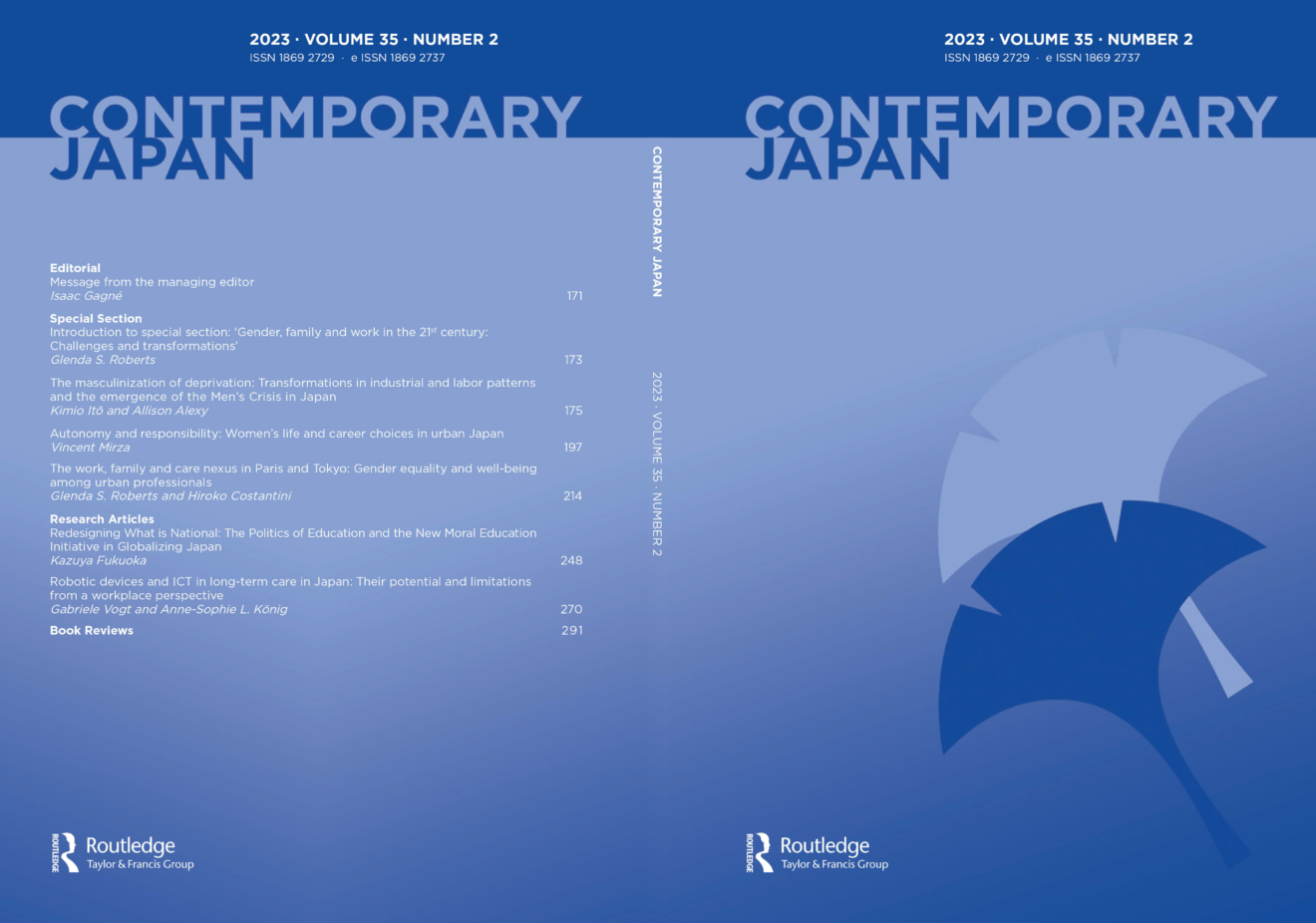
|
Cover © Taylor & Francis
|
|
New CJ Issue on Gender, Family and Work
|
|
The new issue of Contemporary Japan contains a special section on “Gender, Family and Work in the 21st Century: Challenges and Transformations”. It is guest edited by Glenda S. Roberts and includes articles on the masculinization of deprivation (K. Itō & A. Alexy), on women’s life and career choices in urban Japan (V. Mirza), and on gender equality and well-being among urban professionals in Paris and Tokyo (G. Roberts & H. Costantini). This issue also contains research articles on the politics of education (K. Fukuoka) and on robotic devices and ICT in long-term care (G. Vogt & A. König). The book review section covers publications on urban migrants in rural Japan, on education and social justice, and on censorship.
|
|
|
|
|
|

|
Cover © Japanologie Wien
|
|
|
|
|
Recent journal articles, book chapters, and contributions to blogs by DIJ researchers:
|
- Nora Kottmann (with Laura Dales), "Japanese Singles and Solo-Life". Singular Selves: An Introduction to Singles Studies, eds. Ketaki Chowkhani & Craig Wynne, Routledge 2024, 119–137.
- David M. Malitz, "Guardians of the international order". IPS Journal for International Politics and Society, 16 November 2023, online (German version).
- David M. Malitz, "Roboterkatze, Tuk-Tuks und Verfassungen: Aspekte der japanisch-thailändischen Beziehungen", MWS Themenportal, online.
- Sebastian Polak-Rottmann (mit Victoria Schweyer & Jana Wunderlich), "Gute Orte für das Alter. Bestandsrevitalisierung für eine kommunenbasierte Altenpflege", Archithese (Themenheft Japan) 4/2023.
- Torsten Weber, "Expokritik: Vielfalt als Nationalgeschichte. Das japanische Rekihaku Museum", Werkstatt Geschichte, Vol. 31, No. 88, 125–133.
- Torsten Weber, "Drahtseilakte der Kooperation und „safe spaces“ für freie Forschung – wie soll Wissenschaft auf Autokratien, Populismus und Aggressionskriege reagieren?", MWS Blog Geisteswissenschaften als Beruf, 15 November 2023, online.
- Torsten Weber, "Mit dem Herz eines Buddha: John Rabe und das Nanking-Massaker", Clausewitz Spezial: Pazifikkrieg, November 2023, 26–29.
|
|
|
|
|
DIJ News ・Aus dem DIJ・研究所ニュース
|
|
|

|
Photos © private
|
DIJ Welcomes New Research Fellows
|
In October, Carolin Fleischer-Heininger (left) and Nicole M. Mueller (right) have joined our team. Carolin (PhD Japanese Studies, LMU) works in the fields of Literary and Disability Studies. At the DIJ she has started a new research project on representations of disability and gainful work in contemporary Japanese literature. Nicole M. Mueller (PhD Japanese Studies, Halle University) works in the fields of Sociology of Literature, Cultural Sociology, and Digital Humanities. Her new project at the DIJ examines Japanese future imaginaries of extended reality (XR) as well as corresponding cultural narratives. We warmly welcome both to the DIJ team!
|
|
|
|
|
|
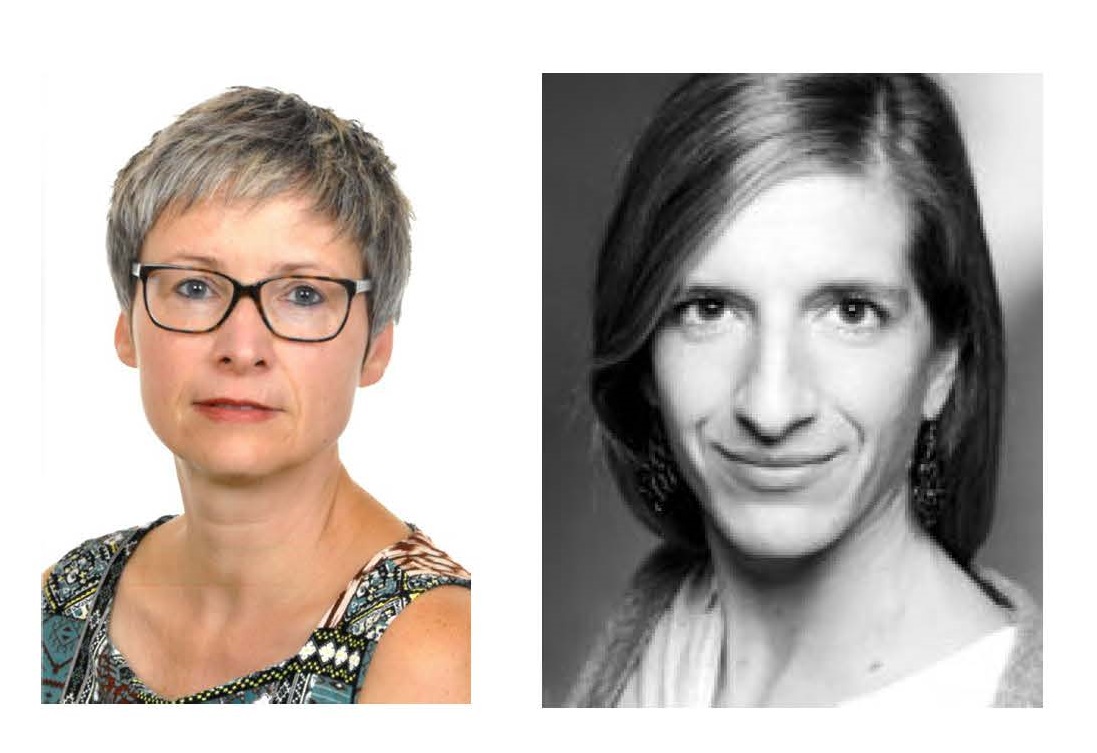
|
Photos © private
|
|
Goodbyes to DIJ Principal Researchers
|
|
In September, Barbara Geilhorn (Cultural Studies, Theater & Performance Studies) left the DIJ to take up a new position as Specially Appointed Professor of Cultural Resource Studies at the University of Tokyo. One month later, Nora Kottmann (Sociology) left our team to start a new position as Programme Director for Sociology at the Volkswagen Foundation in Hanover. Both had joined the DIJ in 2018. Barbara contributed to our research cluster 'Sustainability and Resilience' and Nora led the cluster 'Methods and Methodologies'. We wish both the very best in their new jobs!
|
|
|
|
|
|
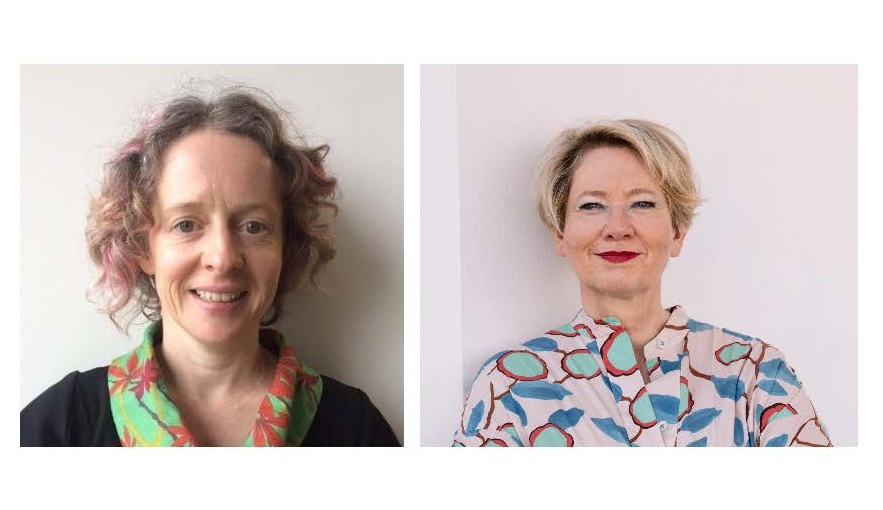
|
Photos © private
|
|
New Visiting Researchers at the DIJ
|
In November and December, the DIJ hosted Emma Dalton (Japanese Studies, La Trobe University) and Claudia Neu (Rural Sociology, University of Göttingen/University of Kassel) as visiting professors. While at the DIJ, Emma furthered her research into women’s political representation and gathered data for a new project about Tokyo metropolitan assembly politics. Claudia expanded her research on social places in Japan with a focus on loneliness and rural areas.
|
|
|
|
|
|
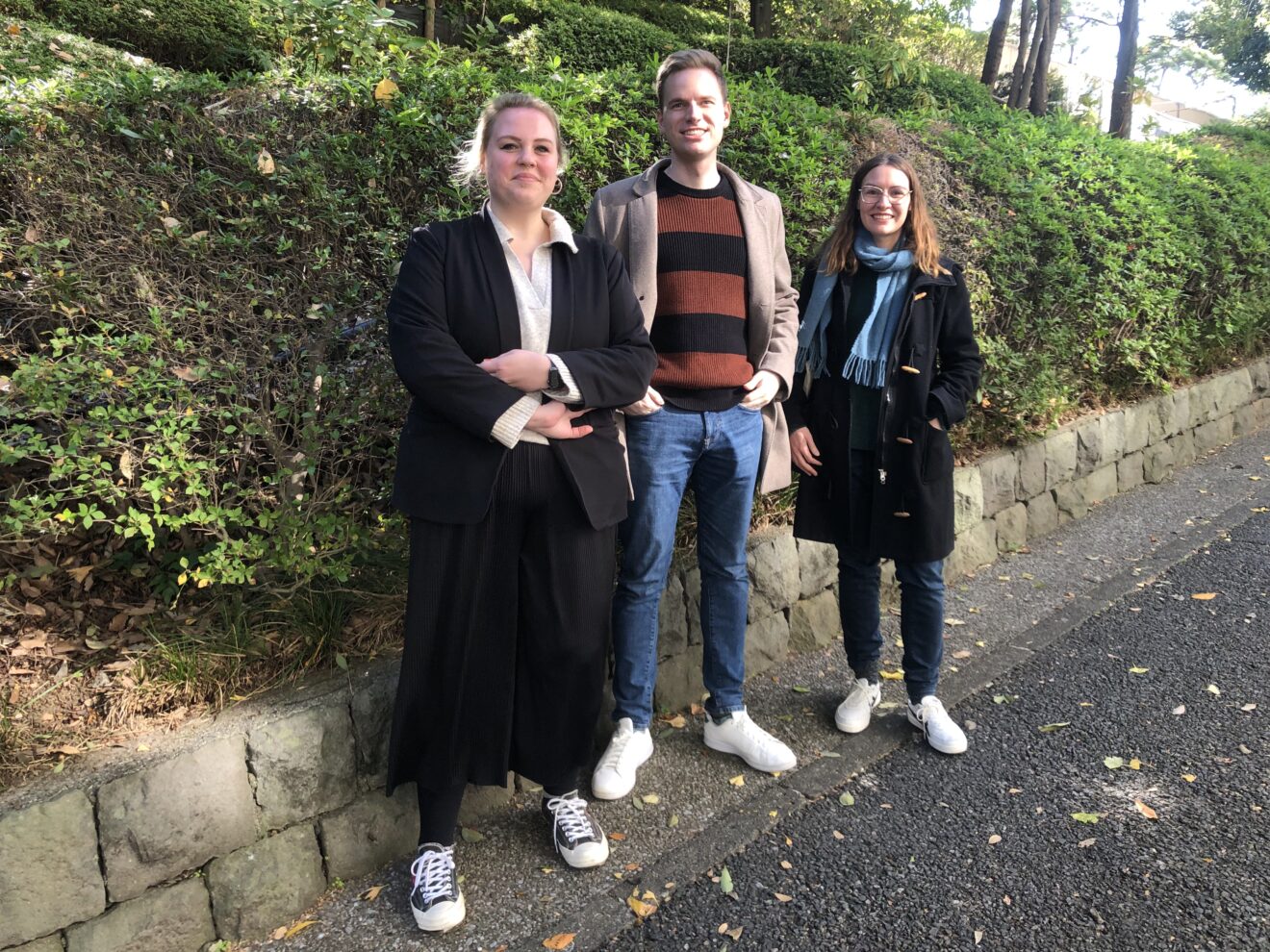
|
Photo © DIJ
|
|
DIJ Welcomes New PhD Students
|
|
In October and November, Annika Clasen (left), Julien Schickling (centre), and Jasmin Rückert (right) have joined the DIJ as PhD students. Annika (HHU Dusseldorf) examines which norms and values are applied to and influence Japanese foreign and security policy in the Indo-Pacific region. At the DIJ she focuses on how feminist foreign policy trends affect Japan. Julien (Goethe University Frankfurt) researches the liability for wrongful death in German and Japanese tort law. In Japan, he conducts expert interviews with judges, lawyers, and dispute resolution institutions. Jasmin (HHU Dusseldorf) is completing her dissertation titled ‘Captured in Reflection: Japanese Photography in Manchuria and North China’. It analyses photography as a social practice and aesthetics under the influence of Japanese war propaganda.
|
|
|
|
|
|
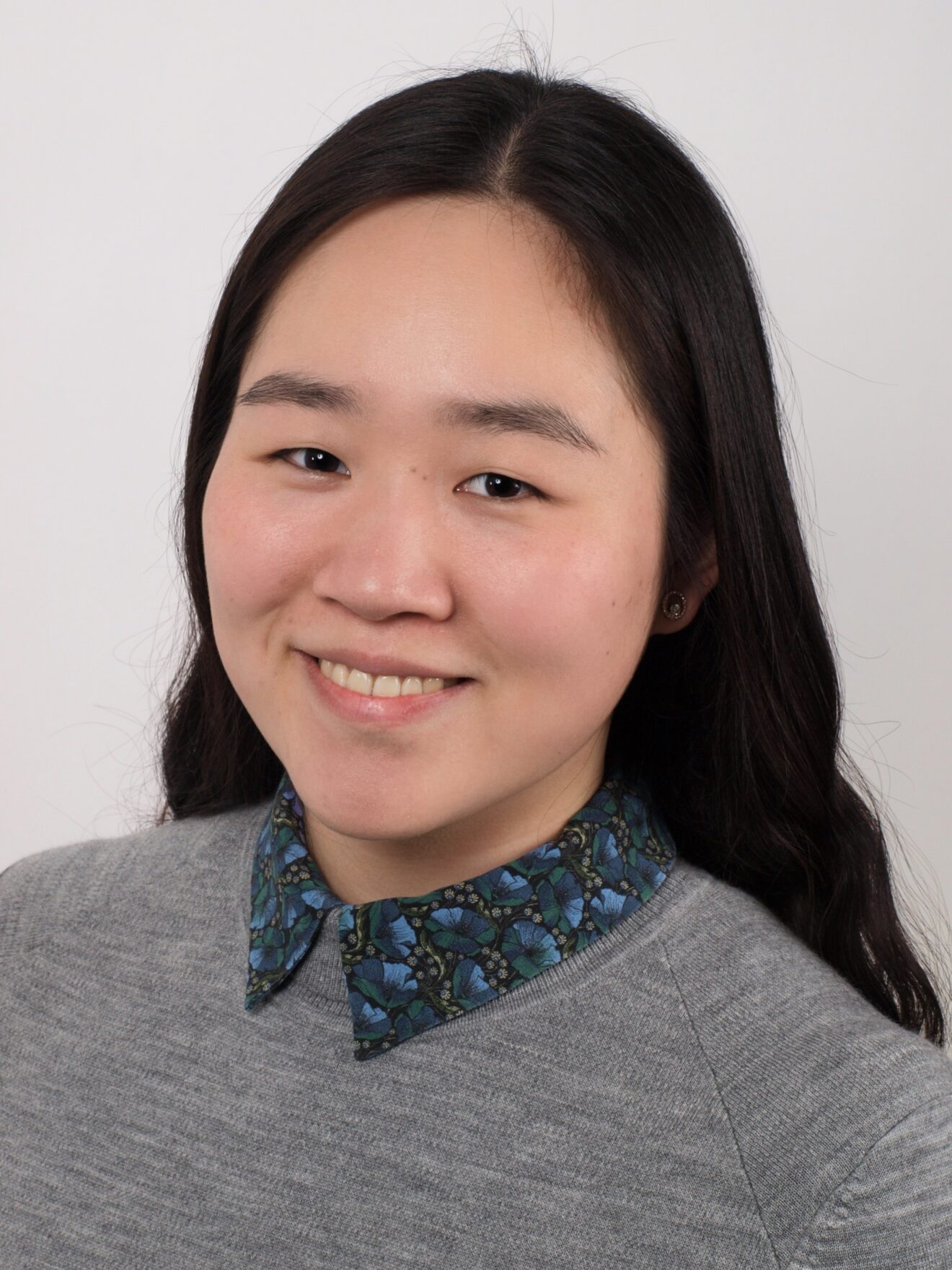
|
Photo © private
|
|
Introducing Our Intern Karin Shima
|
|
From October to December, Karin Shima has been part of our team as an intern. Karin is currently pursuing a Master’s degree in Sociology with a focus on diversity and society at the University of Tübingen. During her internship, she supports projects in the research cluster 'Sustainability and Resilience', including a study on how Japanese newspapers cover sustainability in Japan. If you are interested in joining our team as an intern in 2024, please see our guidelines here (in German). We look forward to your application!
|
|
|
|
|
|
Past Events ・Vergangene Veranstaltungen・最近のイベント
|
|
|
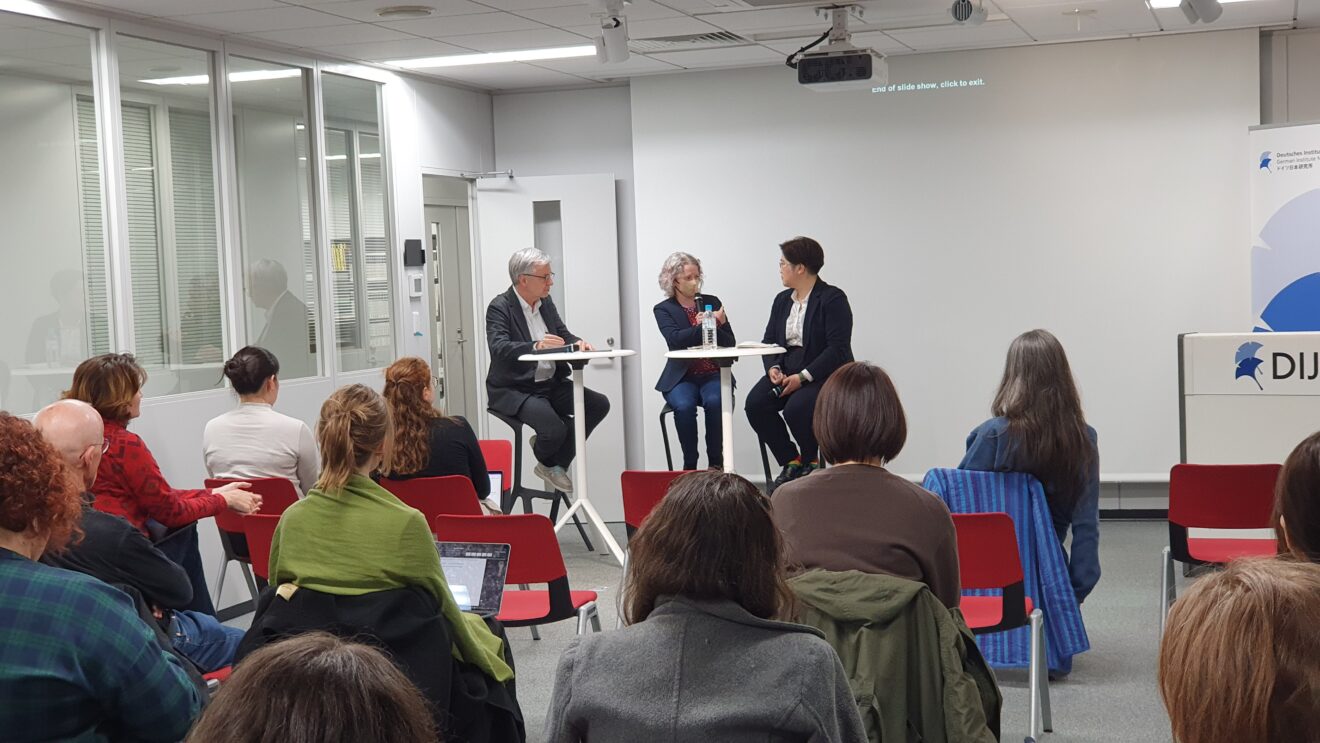
|
Photo © DIJ
|
DIJ Forum on 'Woman Problem' in Politics
|
|
Japanese politics has a woman problem. Not only are women relatively absent from legislative assemblies; when they run for elections, and even after they’ve won, they are often faced with sexual harassment. In the DIJ Forum Japanese Politics – What Keeps Women Out?, Emma Dalton (La Trobe University) and Naoko Oki (Sugiyama Jogakuen University), explored the causes of women’s under-representation in local politics and highlighted the sexism experienced by women who campaign for and get elected to office. By considering institutional and cultural barriers like the electoral system and sexual harassment, they presented a big-picture analysis of male-dominated politics in Japan. A video of this event is available on the DIJ's YouTube channel.
|
|
|
|
|
|
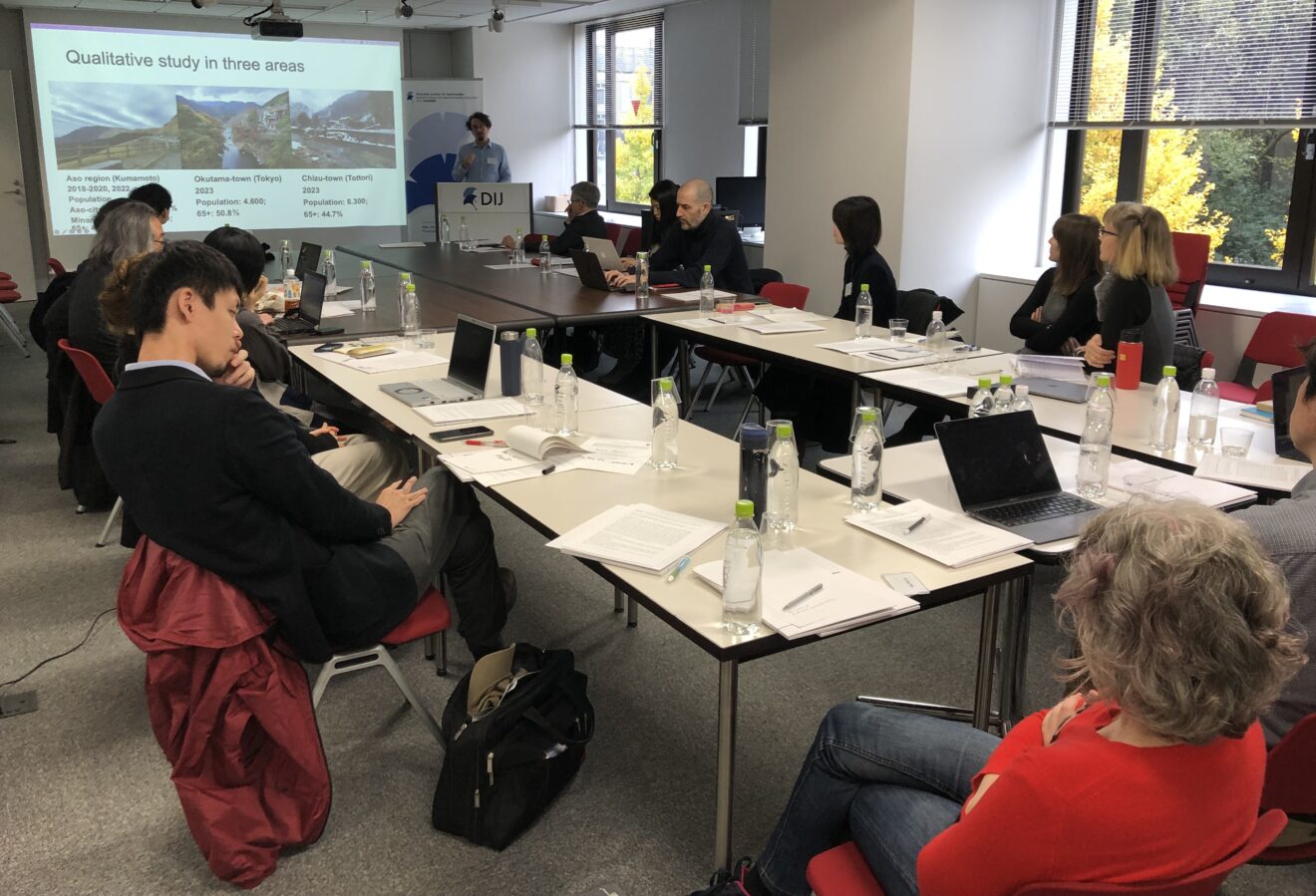
|
Photo © DIJ
|
|
Communicative Spaces in Rural Areas
|
|
Rural areas in Japan have been facing challenges due to ongoing demographic decline and high rates of aging — but they are often also home to vibrant places offering space for deliberation, communication, networking, and political activities. The DIJ workshop Conceptualizing communicative spaces in rural areas in Japan and Germany brought together experts of such spaces who introduced their research and discussed differences between Japan and Germany. One result of the workshop was the establishment of a network of scholars and practitioners working in this field.
|
|
|
|
|
|
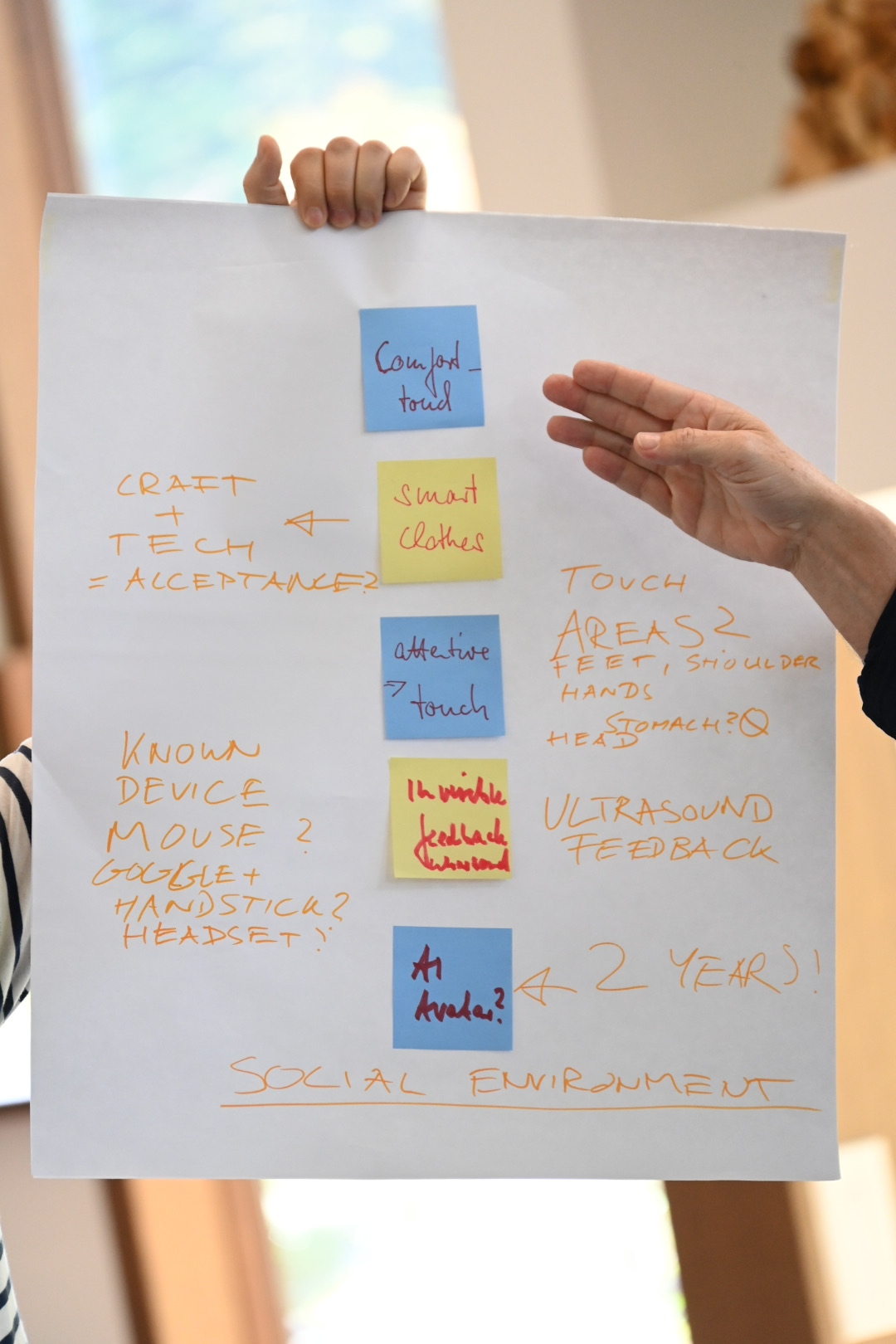
|
Photo © Keio Media Design
|
Symposium 'Mediated Social Touch'
|
|
What is the future role of mediated social touch for social inclusion and societal participation in Japanese and German societies? To gain a comprehensive and multi-perspective understanding of its potential for connecting humans in a digitalized world, experts and practitioners from social sciences, neuroscience, haptics and computer science/AI discussed tactile and haptic human-machine-human interactions. The public symposium Mediated Social Touch. Interdisciplinary Explorations of Digital Touch to Connect Humans on 18 October was preceded by a three-day internal workshop.
|
|
|
|
|
|
DIJ in the Media ・ In den Medien・メディアで知るDIJ
|
|
|

|
Screenshot © DLF
|
DIJ Expertise in German Media
|
|
Japan is the industrialised country with the highest national debt: per capita debt is more than twice as high as in Germany. Can Germany learn from Japan when it comes to making debts? In an interview with Deutschlandfunk Kultur, DIJ director Franz Waldenberger explained that Japan's expansive fiscal policy was based on economically reasonable decisions: a low level of interest rates; high savings rate; stimulation of domestic demand and the avoidance of tax increases. For Germany, he recommends a similarly pragmatic approach to debt.
|
|
|
|
|
|
Alumni News ・Unsere Ehemaligen ・DIJ 同窓会
|
|
|
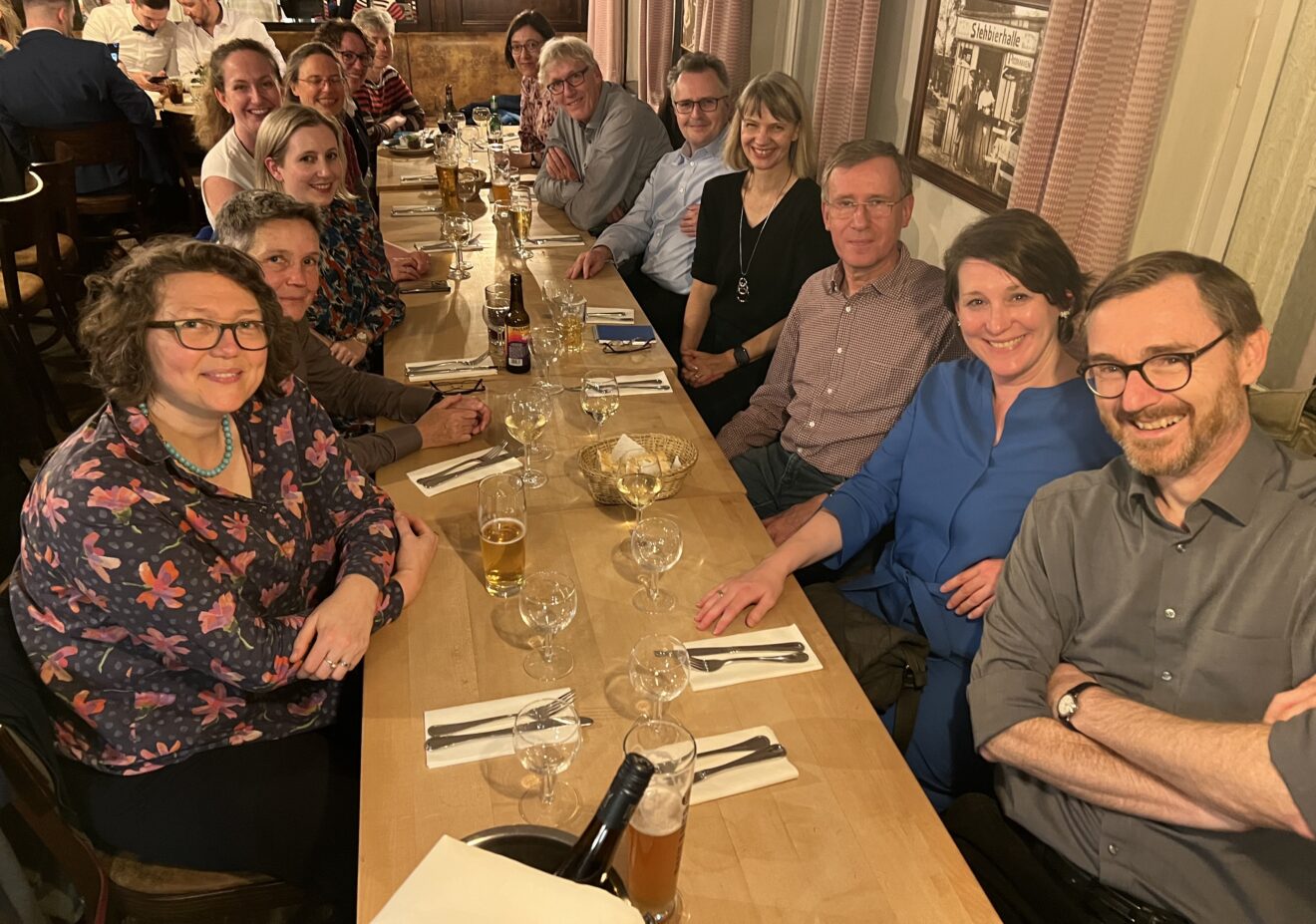
|
Photo © DIJ
|
DIJ Alumni Meeting at VSJF Conference
|
|
During this year’s annual conference of the German Association for Social Science Research on Japan (VSFJ) in Berlin, 14 current and former DIJ employees met for an alumni dinner. The photo shows (left to right): Cosima Wagner, Isa Ducke, Elisabeth Köller, Ruth Achenbach, Michaela Oberwinkler, Gabriele Vogt, Ursula Flache, Momoyo Hüstebeck, Helmut Demes, Harald Conrad, Barbara Holthus, Hanns Günther Hilpert, Phoebe Stella Holdgrün, and Axel Klein. Together, they represent no less than 26 of the 35 years of DIJ history.
|
|
|
|
|
|
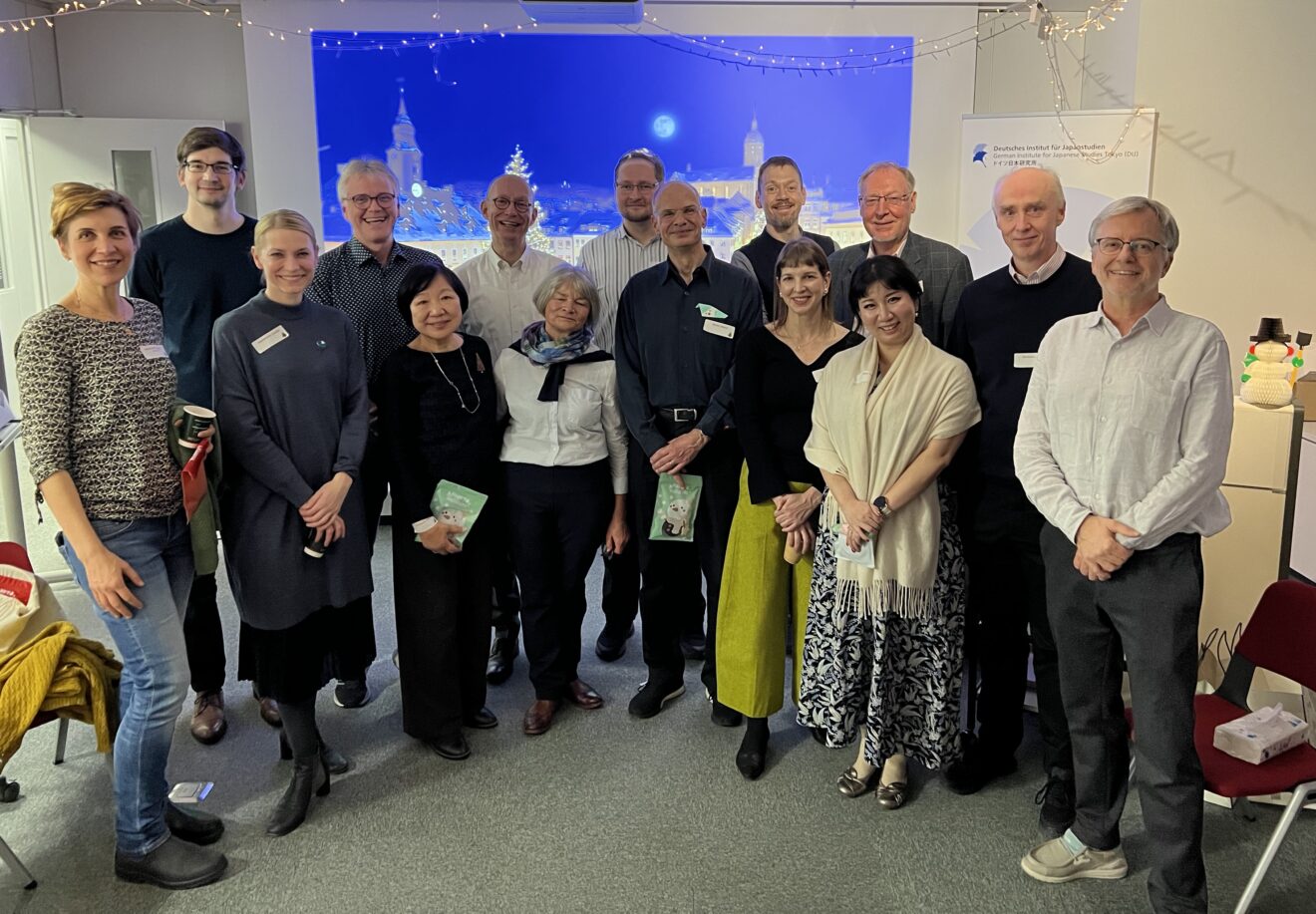
|
Photo © DIJ
|
DIJ Alumni Join Our Christmas Party
|
|
On 8 December 2023, 15 DIJ alumni joined our traditional Christmas party, including Kristina Iwata-Weickgenannt, Michael Dietrich, Carola Hommerich, Hendrik Meyer-Ohle, Eiko Sugimoto, Wieland Nötzold, Marga Dinkel, Benjamin Rabe, Martin Schulz, Björn-Ole Kamm, Sabine Schenk, Heinrich Menkhaus, Yufei Zhou, and Martin Hemmert (left to right). They were welcomed by DIJ director Franz Waldenberger.
|
|
|
|
|
|
|
If you are part of the growing group of DIJ alumni and have recently published a book or have any other news to share with us, please contact us via newsletter@dijtokyo.org
|
|
|
|
|
|
Social Media ・Soziale Medien・ソーシャルメディア
|
|
|
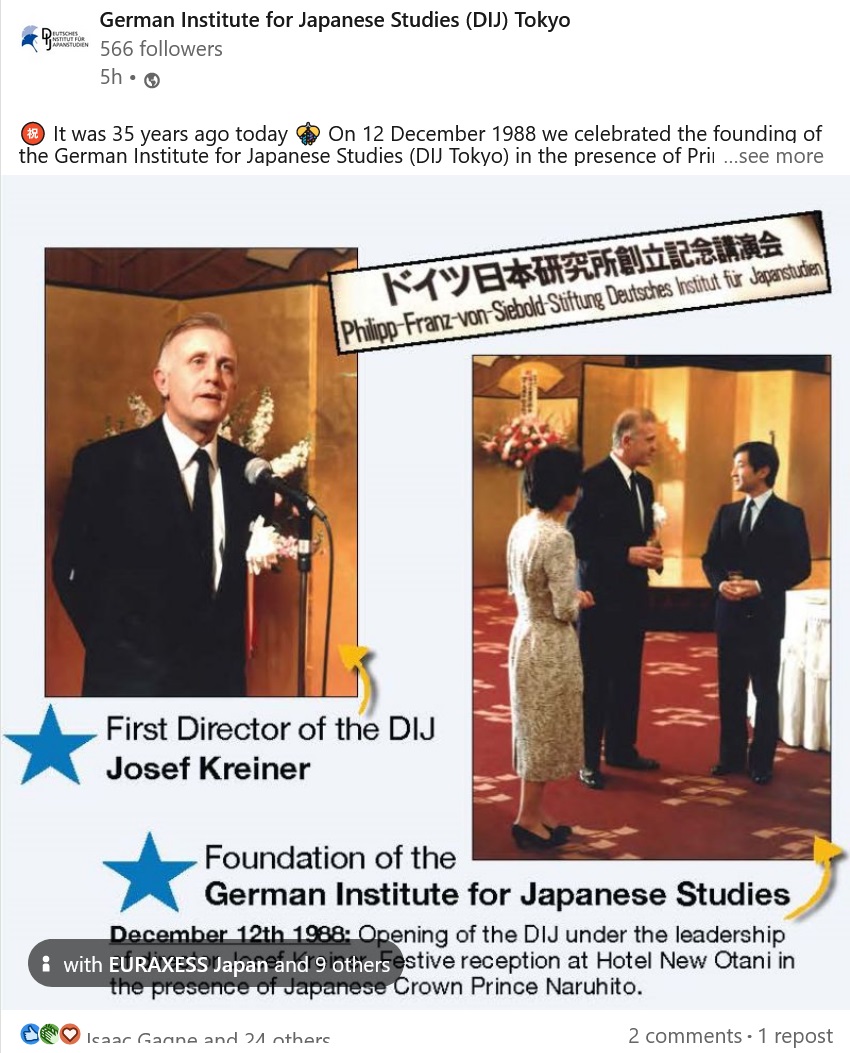
|
Screenshot © LinkedIn
|
More DIJ News on LinkedIn
In the spring edition of this newsletter we had announced our new social media activity on LinkedIn. We have been overwhelmed by its success: within less than six months the number of our followers doubled and has now reached 580. If you don't want to miss our next birthday post (see screenshot) or other updates on our research, publications, outreach and alumni activities, please follow the DIJ account on LinkedIn. Through our network you can also connect with many of our current staff members and DIJ alumni as well as friends and supporters of our institute.
|
|
|
|
|
|
|